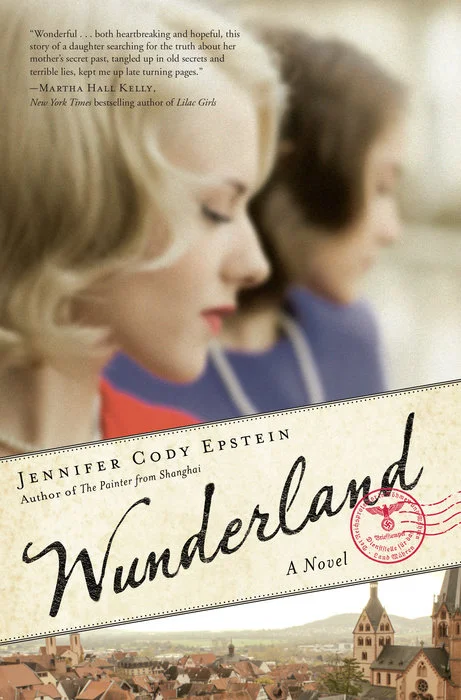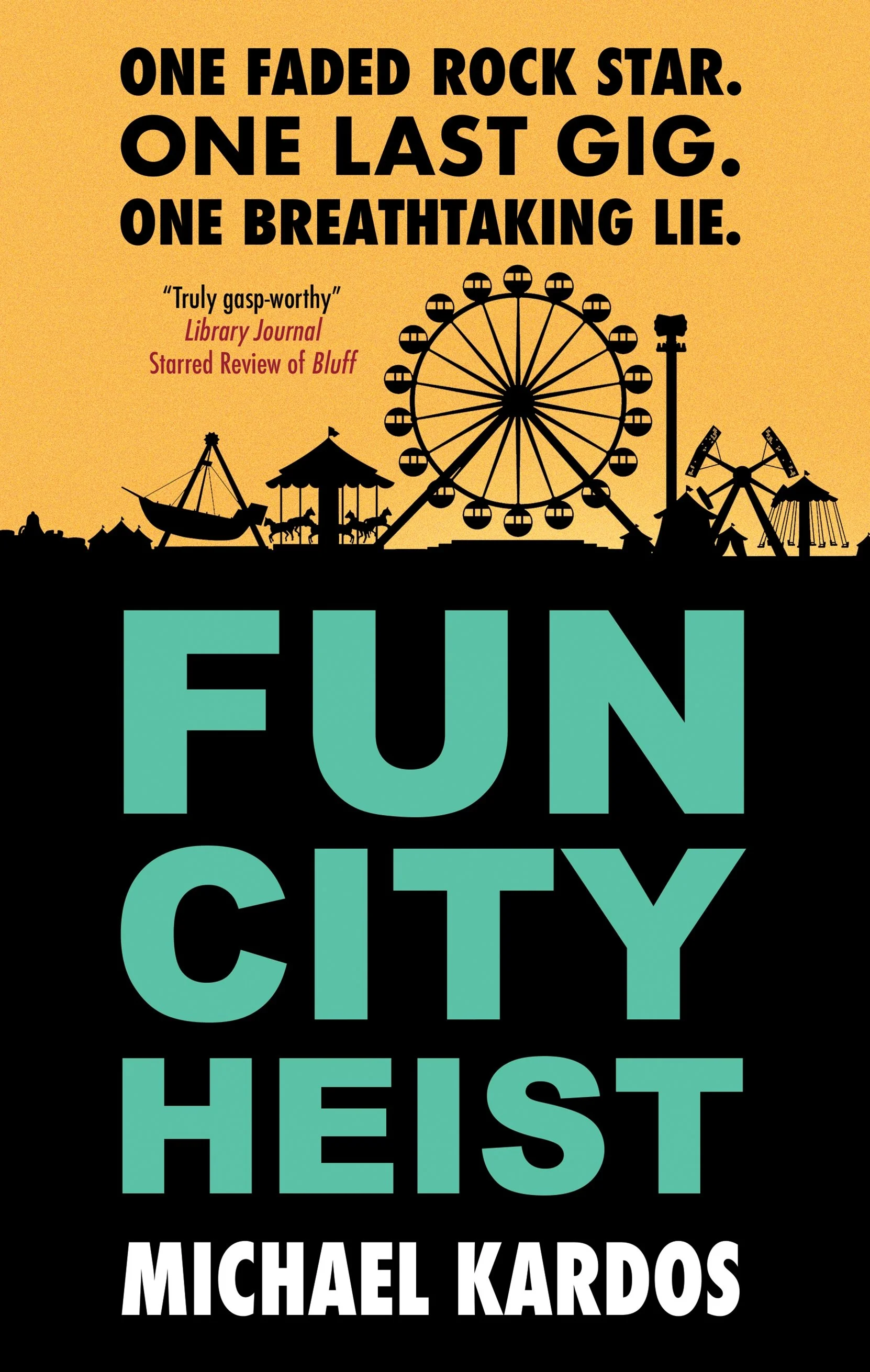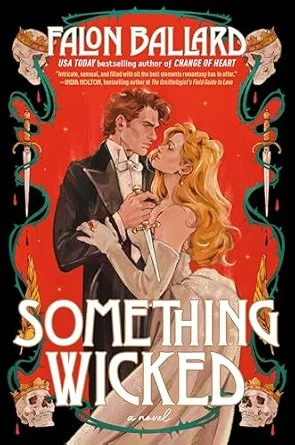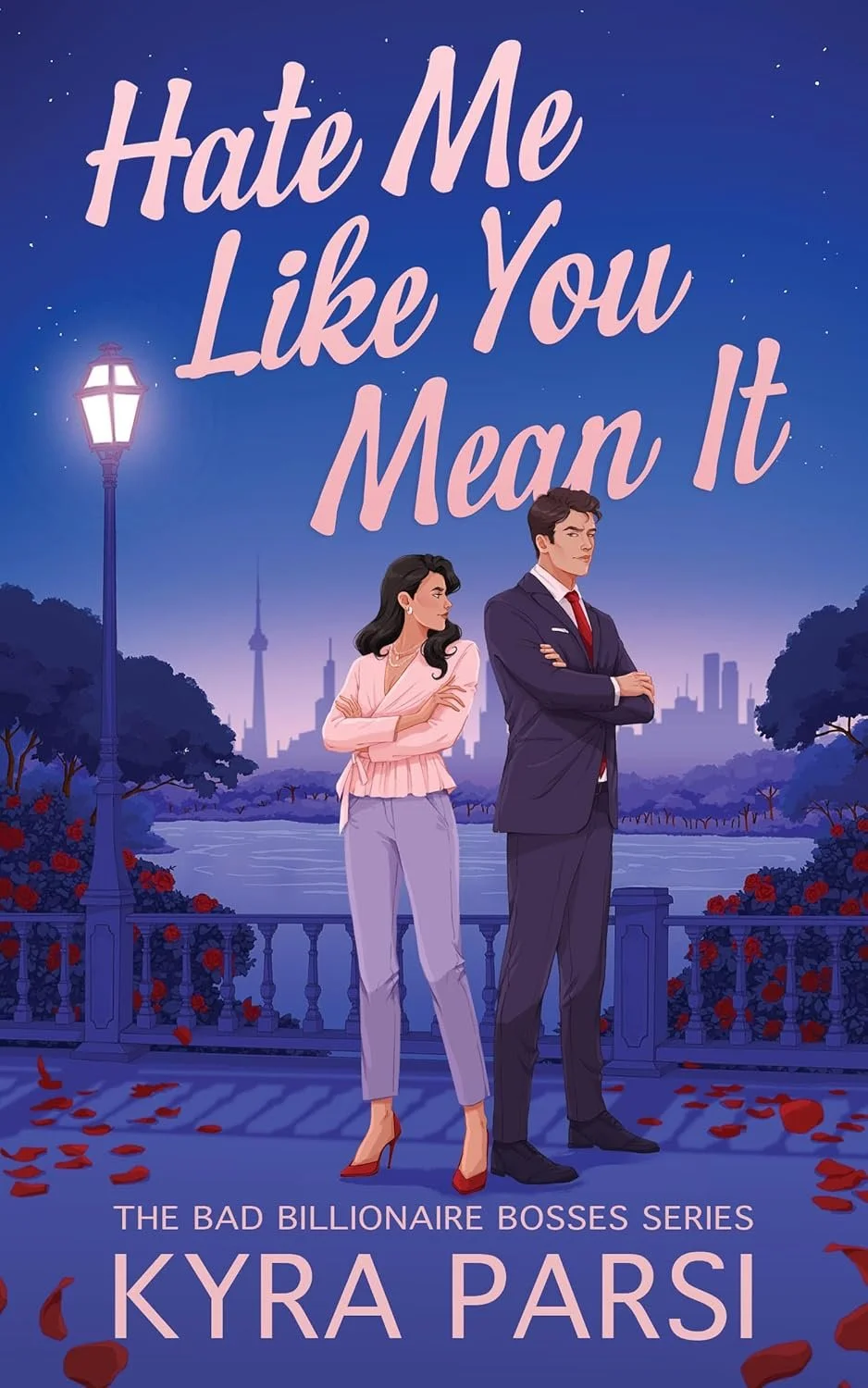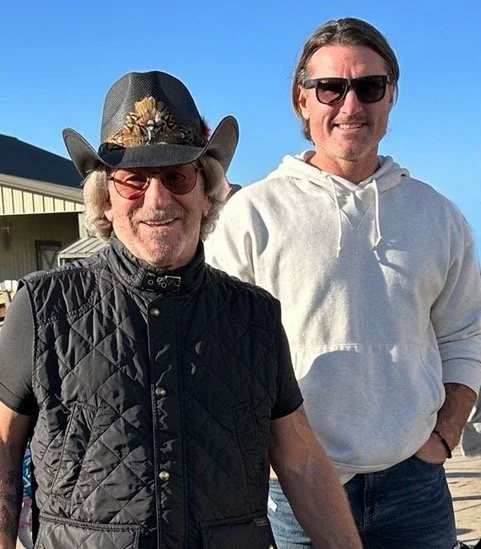Spotlight: Wunderland by Jennifer Cody Epstein
/An intimate portrait of a friendship severed by history, and a sweeping saga of wartime, motherhood, and legacy by an award-winning novelist
East Village, 1989
Things had never been easy between Ava Fisher and her estranged mother Ilse. Too many questions hovered between them: Who was Ava’s father? Where had Ilse been during the war? Why had she left her only child in a German orphanage during the war’s final months? But now Ilse’s ashes have arrived from Germany, and with them, a trove of unsent letters addressed to someone else unknown to Ava: Renate Bauer, a childhood friend. As her mother’s letters unfurl a dark past, Ava spirals deep into the shocking history of a woman she never truly knew.
Berlin, 1933
As the Nazi party tightens its grip on the city, Ilse and Renate find their friendship under siege—and Ilse’s increasing involvement in the Hitler Youth movement leaves them on opposing sides of the gathering storm. Then the Nuremburg Laws force Renate to confront a long-buried past, and a catastrophic betrayal is set in motion…
An unflinching exploration of Nazi Germany and its legacy, Wunderland is a at once a powerful portrait of an unspeakable crime history and a page-turning contemplation of womanhood, wartime, and just how far we might go in order to belong.
Excerpt
1. Ava
1989
She sits in a sea of tangled sheets and blankets, amid the white crests of packing peanuts and age-curled pages of letters pried from their envelopes with increasing feverishness. The bed is solid: the same heavy oaken headboard, same stained, sloping mattress upon which she has slept and breastfed and read and sketched for more than a decade; the one place she comes to truly be at rest. And yet at this moment, she’s somehow both floating off it and falling right through it, is both untethered and sinking like a stone.
Perching her reading glasses atop her head, Ava Fischer clasps her knees to her chest. Her face tight and hot with tears shed, dried, and shed again, she tosses the last of the letters onto the bed. Surveying the sun-challenged domain that serves as both drawing studio and master bedroom, she finds herself amazed that it looks exactly as it did a little over an hour earlier, while in the same amount of time her entire world has been gutted, brusquely turned on its head. And yet the illustration she’s been working on still sits atop her drafting table, anchored at one corner by an untouched plate of marmalade toast and another by a cold coffee mug inscribed with Drink Me. A few peanuts that escaped in her initial frenzy of unpacking the box still lie strewn on the shag carpet, air-puffed stars in eccentric and porous constellations against a worn, dun-colored sky.
But it’s the bed that holds the full evidence of Ava’s emotional undoing. The bed, with its wrinkled sheets and mismatched cushions, its dusty bedskirt and moth-eaten coverlet, its stale tobacco tang that somehow lingers on four full years after she stopped smoking. The bed, with the now-empty Luftpost carton her daughter had signed for earlier and carried in to Ava with mild curiosity (It’s from Bremen. Isn’t that where you grew up?).
The bed upon which Ava had then waited for what felt like hours, box in her lap, for Sophie to leave to meet her friends. Upon finally hearing her daughter’s plastic-soled flats patter down three flights of stairs before exiting onto Second Avenue, she’d dropped the package long enough to lunge toward the window to watch the fourteen-year-old stroll off, her hands in the pockets of her checked menswear vest, Walkman headphones glinting silver in the sun.
The bed, where she’d read the lawyer’s curtly formal note less with shock than a sinking sense of acceptance:
Sehr geehrte Frau von Fischer:
As your mother’s lawyer and designated executor of her estate, I regret to inform you that your mother--Ilse Maria von Fischer--passed away on the twelfth of April, after a long battle with uterine cancer.
In accordance with her wishes, I enclose her remains for your disposal and request that you confirm delivery by fax or phone at the numbers listed on our letterhead. Once we have your confirmation we will be able to release the remainder of your inheritance, roughly 71,000 marks. If you do not confirm receipt in person, I’ve been instructed to donate this amount to The Blue Card, a charity of your late mother’s choosing.
I also include some letters that your mother asked be forwarded to you, and request that you confirm receipt of these as well.
With condolences and best regards:
Bernard Frankel, LLP
Leaning stiffly against the headboard, Ava again forces herself to make these impossible-seeming connections: between the idea of remains and the Tupperware-style container she’d pulled from beneath the peanuts an hour earlier. Between Mama--that inevitably fraught and painful thought--and the gritty powder Ava had discovered upon prying off the container’s lid. It hadn’t smelled like Ilse, that disquietingly familiar blend of facial soap, 4711 cologne, and faint perspiration. It certainly hadn’t looked like her; in Ava’s mind’s eye her mother was eternally milk-skinned and muscular, golden-haired and silver-eyed. Above all, overwhelmingly dense.
And yet staring into the ashy depths, she’d registered the truth of the lawyer’s assertion: this was now quite literally all that was left of Ilse von Fischer, the evasive, icy parent who had abandoned Ava physically during the war and emotionally in its wake; who’d left her in this very apartment twelve years earlier, while Sophie wailed from her crib. And while it saddened Ava to realize that the woman herself no longer walked and breathed, in the end it hadn’t really shocked her; for Ava, Ilse had effectively ceased to exist the moment she walked out the door that hot summer of 1977. Yes, for a few years there’d been the occasional long-distance call that Ava cut short after hearing Ilse’s curt Hallo. There’d been the slow trickle of cards and letters and the occasional small package, all of which Ava returned to Bremen unopened. But once Sophie grew old enough to answer the phone and read the return addresses on envelopes, Ava changed their number and sent a telegraphed ultimatum through Western Union:
Kontaktiere uns nicht (halt) du bist jetzt tot (halt)
Do not contact (stop) for us you are dead (stop)
No, it wasn’t so much Ilse’s physical remnants that had launched her into this vertiginous shock. It was the words she had left behind: detailed, careful accounts sealed into over a dozen envelopes. I also include some letters that your mother asked be forwarded to you, the lawyer had written, almost in a casual aside. Could he have known all that they encompassed: the crushing truths and bereft confessions? Though to be sure, some of these had merely confirmed Ava’s own long-held suspicions. I actually began writing you, one divulged, from an old jail in Heidelberg, where the Americans had hoped to de-Nazify me.
Entnazifizieren! She’d blinked at that unfamiliar and faintly absurd verb (as though moral rot could be extracted like a burst appendix!). But her shiver had been less one of surprise than vindication. Everyone joined, Ilse would say, shrugging, but Ava had always sensed a darker story shadowing this particular deflection.
Tossing the lawyer’s note aside, Ava once more takes in her epistolary inheritance. Yellowing with age and of various thicknesses, the letters lie strewn over the coverlet. None of them seemingly sent; all of them addressed to the same woman:
Renate Bauer
163 Eldridge St
New York, New York 10002
USA
It’s the first time Ava has encountered this name: Renate Bauer. But that Ilse wrote the woman obsessively is clear: the letters are all in her old-fashioned, slightly Gothic hand. And the return address is quite definitively the Schwachhausen row house that Ava still dreams of in startling detail: the lemon yellow her mother had painted Ava’s bedroom wall as a child. The green chipped mug in which they’d kept their two toothbrushes. The dark circular stain on the wooden desk in Ilse’s bedroom, the legacy of some slopped coffee, wine, or water.
Reaching for the nearest one--dated August 1976--Ava smooths the two thin sheets against the wrinkled linen of her pajama pants, catching a whiff of must and mothballs, a whispered vanilla hint. Like the others, this one is written in the informal “Du” form, with capitals omitted as her mother would have done for a close friend:
My dearest Reni!
Last night I had a dream. It began the day that we first met in middle school; when you--late as always--rushed into me on your way into our classroom and dropped the books you were carrying. Strange, how so much from more recent years has become vague for me. And yet I still recall small details of our first encounter with such clarity: the golden brown of your eyes. The red bow in your hair. The worn book I handed back to you, with the comment that for some reason I’d only read the sequel, but had loved it.
Then, somehow, it was later--much, much later, and I was walking down Unter den Linden, by the newsstands and the U-Bahn station, on the route we always took coming back to your house after school. I had the book, and I knew that returning it (not to you but to Franz for some reason) was of utmost, nearly crushing importance. The street was clean and gray and so crowded I could barely breathe. But it was also completely silent. I was aware of feeling very alone, and very worried that I wouldn’t accomplish my task.
Then I saw you only a few meters ahead, hurrying in the opposite direction. You were wearing your green coat and your little black hat, and Franz had on one of those tweed newsboys he used to favor. I felt such enormous joy and relief! I tried to catch up to you but the crowd kept pushing, pushing against me, pushing me back. I tried to call out to you, but though you seemed close enough you didn’t hear me. The two of you just kept walking. And eventually, you both disappeared.
I woke up in tears, but also strangely resigned. I don’t know much about dreams—certainly not as much as your mother did (I still remember talking with her for hours about what ours were, what they meant). But it seemed to me that this one was perhaps a sign that it was finally time to realize the truth: that while I continually fantasize about reaching out to you and Franz, perhaps even coming to New York and hand-delivering my letters to you, the truth is that for the moment at least I lack the courage to even drop them into the post. I should therefore probably just stop writing them altogether. Indeed, if I were a less obstinate person I likely would have stopped a long time ago.
But we both know how I hold on to things.
Reni. If there were just one thing in all these writings I could communicate to you, it would be this: that if I could go back and change everything, I would. Everything. I would even change the fact of my own existence, my own birth, if it meant that I could undo what was done—to you, and to your family. That I can’t is a fact that pains me every single day.
In the end, perhaps that is my true prison.
Ilse
Ava shuts her eyes. For a moment the old panic threatens: the suffocating certainty that the ceiling and walls are about to collapse, choking out all air and light. To counter the attack, she summons the comforting image suggested by her last therapist: the golden Montauk shoreline, captured breezily in midsummer.
But what comes instead is another beachside memory entirely.
In it Ava is perhaps six, on a rare mother-daughter outing to Großer Wannsee shortly after their postwar reunion. The sand is wet and grainy, the day bone-bright and raw in the way very early spring days can be. At some point Ava sees Ilse striding walking away from her briskly, her braid-wrapped head a shrinking spot of brightness in the chill morning light. The sight pries open a black, panicked hole in Ava’s center: Come back, she wails. Don’t leave me. Leaping to her bare feet, she charges after the retreating figure—only to feel a pair of strong arms sweep her up from behind. For a moment she writhes and kicks before recognizing the still-familiar form, the sturdy torso and round breasts pressed into her small back.
Dummes Mädchen, murmurs Ilse, who has been behind her the whole time. What on earth is the matter with you now?
The recollection carries the heft and hurt of a physical blow. What pulls her from it is a sudden pounding on the door, violent enough to rattle the ancient air conditioner in its frame.
“Mom!” Sophie shouts, with that spontaneous and implacable outrage peculiar to teenaged girls. “I totally forgot I promised to bring Erica back her Lou Reed sweatshirt. Did you wash it? You said you were going to wash it.”
Sophie? Why was she back? And how had she gotten in without Ava hearing her?
After a moment of blank paralysis she leaps to her knees and begins scrabbling the letters together. “Just a moment,” she calls, thinking: Scheisse, Scheisse, Sophie. Her daughter fully believes that Ilse has been dead now for over a decade. What am I going to tell her?
“Mom! Do you have it?” The doorknob chatters in its fixture. “Oh my God—why is this locked?”
“Hold on! Just hold on a minute!” A desperate look around the unkempt bedroom: the sweatshirt’s nowhere in sight.
Shoving the urn inside the box, Ava showers it with a handful of peanuts and sweeps the letters into an untidy pile beside it. Then she makes her way to the door, her knees as weak as a New York City Marathon runner’s, her heart beating like a living creature in her mouth.
“Mom! Jesus!” (Bang-bang-bang.) “Erica’s waiting! What the hell is going on in there?”
“Nothing,” says Ava shakily.
And with a deep breath, she reaches for the doorknob.
Excerpted from Wunderland by Jennifer Cody Epstein. Copyright © 2019 by Jennifer Cody Epstein. All rights reserved. No part of this excerpt may be reproduced or reprinted without permission in writing from the publisher.
Buy on Amazon | Barnes and Noble
About the Author
JENNIFER CODY EPSTEIN is the author of the international bestseller The Painter from Shanghai, and The Gods of Heavenly Punishment, and winner of the 2013 Asian Pacific Association of Librarians Honor award for outstanding fiction. She has written for The Wall Street Journal, Vogue, Self, Mademoiselle, and many others. She has an MFA in fiction from Columbia University and an MA in international affairs from the Johns Hopkins School of Advanced International Studies. She lives in Brooklyn with her husband and two daughters.

